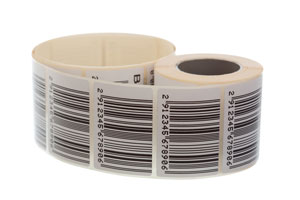by NCIA’s Packaging and Labeling Committee
Karen Bernstein, Bernstein IP; Alex Berger, Emerge Law Group; and Carl Rowley, Thompson Coburn LLP
You may have read about how the Federal Trade Commission (FTC) has been cracking down on labeling of CBD products and how labeling of your Cannabis products could land you in court. Here are some tips on that may reduce the risk getting into trouble.
Don’t Make Any Claims or Guarantees About the Results of Using Your Cannabis Products.
Even the use of testimonials purporting to say that a Cannabis product gave them positive results could get you into trouble.
Don’t Label Your Cannabis Products “Organic.”
Cannabis is illegal on the federal level and is not regulated by the US Department of Agriculture or the Environmental Protection Agency and most states do not have regulatory oversight over products that are purported to be “organic.”
Be Careful About Calling Your Cannabis Products “Gluten Free,” “Paleo,” and “Certified Vegan.”
Food advocacy groups own federal certification trademarks for these names. Indeed, the Gluten Intolerance Group (“GIG”) recently sued celebrity chef Jamie Oliver for trademark infringement, among other things, for using the letters “GF” surrounded by a circle and the words “Certified Gluten Free.” If you want to be able to call your Cannabis products “Gluten Free,” “Paleo,” or “Certified Vegan,” you will need to find out what is required by the owners of these trademarks to avoid a costly lawsuit.
Make Sure Geographic Claims are Accurate.
One similarity between the wine and cannabis industries is the association of certain geographical regions with the characteristics and quality of the product produced in them. Think Bordeaux, Champagne, Burgundy (wine) and Humboldt, Emerald Triangle, “BC Bud” (cannabis). As the cannabis industry matures and consumers become increasingly sophisticated, growers and manufacturers will most likely seek to distinguish and capitalize on their products’ geographical origins. California’s nascent labeling regulations already acknowledge this likelihood by specifically prohibiting a label to even use the name of a California county unless the cannabis used in the product was grown there. And many states prohibit misleading or untruthful statements on a label. Thus a cannabis business should be wary about including geographical names on their labels if the labeling could mislead consumers into believing that the cannabis was grown in a specific area when it was not.
Share the Rules With Your Designers.
States with labeling and packaging rules on the books largely have one rule in common: labels/packaging must not be attractive to minors. Such regulations among states may differ regarding what “attractive to minors” means. Sharing this, and all, restrictions with your creative team on the front end may save you time and money on the back. Otherwise you may find yourself having already paid for the perfect logo, just to have it rejected by the regulators. It may also be a good idea to communicate regularly with regulators during the design process to ensure you do not run afoul of the regulations. A lot of these rules and definitions are subjective (e.g. “exaggerated features” or “superhuman powers”), so determining the regulators’ interpretations may be advantageous.
Disclose all Additives and Ingredients.
Many concentrate and extract manufacturers add substances to their products to increase/decrease viscosity, obtain a certain appearance, or achieve a certain flavor. But, for a variety of reasons, may not list them on the label. Licensees may believe this compliant with labeling regulations because the licensee does not consider such substances “ingredients” or the regulations may require ingredients only for edible labels. But, many states’ regulations contain a blanket prohibition on untruthful, misleading, or false information, or misrepresentations. Licensees in these circumstances must carefully weigh the commercial benefits of omitting certain information with risks that regulators might consider such omissions misrepresentations.
No set of tips can eliminate the risk that regulators will find fault with your labeling practices, but following these suggestions may save you unnecessary headaches down the road.
This post is for informational purposes only and is not to be construed as legal advice.


Follow NCIA
Newsletter
Facebook
Twitter
LinkedIn
Instagram
–